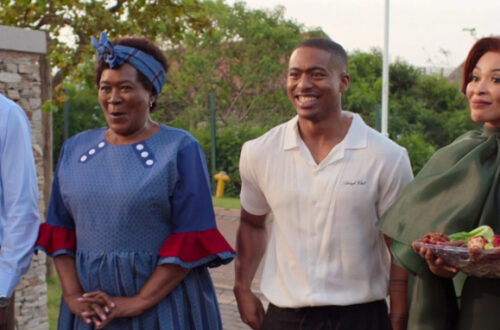
Voice and Support, Mental-Health Hotline for Rural Women
Across the rolling plains, dry veld and scattered villages of South Africa’s rural provinces, women hold families and communities together with quiet strength. They nurture children, tend livestock, manage small farms, and navigate complex social and economic pressures, all too often with little support. Their emotional resilience is formidable, but not limitless. Depression, anxiety, and trauma are widespread, yet the mental health services required to address these challenges are practically non-existent in the places where they are needed most. Recognising this dire gap, the Mvula Trust, in partnership with several grassroots health organisations, has launched a groundbreaking initiative, a mental-health hotline designed specifically for rural women.
The Rural Women’s Mental-Health Hotline is not merely a phone number. It is an entire ecosystem of listening, response and care, built around the realities of rural life. Piloted in Limpopo and the Eastern Cape, the hotline has been developed with one core principle in min, accessibility. For many women, travelling to a clinic for mental health support is simply not an option. Transport costs, long queues, childcare responsibilities, and the social stigma associated with mental illness often make formal counselling unreachable.
By contrast, a hotline brings help to them, to a hut in a remote village, a community centre, or even a shared cellphone passed between neighbours. Crucially, the line is free. The Mvula Trust has partnered with major mobile operators to ensure zero-rated access, removing the barrier of data costs and airtime limitations.
A Hotline With Heart and Heritage
What makes this service unique is its cultural fluency. Counsellors are not only professionally trained in trauma support and psychological first aid, they are fluent in multiple official languages and familiar with the social dynamics of the areas they serve. Many of the hotline staff are women who grew up in similar communities. They understand not just the vocabulary of distress, but the context in which it arises.
For a woman calling from a village near Lusikisiki, it matters that she can speak isiXhosa and use familiar expressions. It matters that the person on the other end of the line understands her family obligations, the pressure of bride wealth negotiations, or the strain of supporting a household on irregular remittances. Language here is more than a tool, it is a form of validation.
The impact of the hotline is already being felt. Siphesihle, a 38-year-old mother of four in Bolobedu, describes the first time she called. “I had been feeling so heavy. I couldn’t sleep, I was crying every day. But I thought I was just being weak. When the lady on the phone told me I was not alone, that these feelings are something many women have, I cried for a different reason. I felt seen.”
Each call is confidential. Women can speak anonymously, and there is no requirement to identify themselves unless they wish to receive follow-up support. For many, just being heard, without judgement or fear of community gossip, is a revolutionary experience.
While the voice call remains the core service, the hotline is supported by an innovative digital extension. Community centres that host EBT (Electronic Bingo Terminal) machines have begun to use those terminals not just for leisure, but for healing. With the support of local facilitators, women can schedule follow-up calls, leave voice messages for counsellors, or access basic mental health literacy materials through the terminals.
The use of EBTs is a powerful example of local adaptation. These machines are already familiar to many rural South Africans, and re-purposing them for health-related outreach reduces the intimidation factor that might come with unfamiliar medical settings or new technologies. It’s a simple but smart way of lowering the psychological and logistical barriers to care.
The hotline is far more than a call centre. It is backed by a growing network of trained community health workers, psychologists, and legal advisors. If a woman reports gender-based violence, the system can refer her to shelters, help her access police assistance, or connect her with legal aid. If she is struggling with suicidal thoughts, emergency interventions are available.
Training is continuous. Every week, hotline staff participate in scenario-based training, group debriefings, and wellness check-ins to ensure they themselves are supported. Burnout in care work is a serious risk, particularly when dealing with trauma, and the hotline’s model reflects this reality. Compassion must flow both ways.
A Window Into Wider Needs
 The data collected (anonymously and ethically) from calls is also helping to build a picture of rural women’s mental health in South Africa. Patterns are emerging, linked to seasonal stress, unemployment rates, food insecurity, and social violence. This data is invaluable not only for programme design, but for advocating better services at provincial and national levels.
The data collected (anonymously and ethically) from calls is also helping to build a picture of rural women’s mental health in South Africa. Patterns are emerging, linked to seasonal stress, unemployment rates, food insecurity, and social violence. This data is invaluable not only for programme design, but for advocating better services at provincial and national levels.
Local clinics, often overburdened and under-equipped, are now receiving contextualised mental health training materials based on the hotline’s findings. In time, this integration between hotline and health system could lead to more seamless care pathways.
As the programme matures, the Mvula Trust and its partners are planning new expansions. A youth hotline, with support available via WhatsApp and SMS, is in development. This platform will speak directly to teenage girls and young women, many of whom face mental health challenges in silence due to generational taboos.
There are also plans to integrate the hotline service into schools, churches and agricultural cooperatives through awareness campaigns and mobile workshops. Mental health, once treated as a taboo, is gradually being reintroduced into everyday language. It is no longer framed solely as illness, but as wellness, resilience, and strength.
Changing the Conversation
The hotline is, at its core, a conversation. It is the voice that interrupts isolation. The ear that listens without rush or agenda. And perhaps most profoundly, it is a quiet cultural intervention in spaces where women have long been told to keep their troubles to themselves.
In these quiet conversations, power shifts. When a woman says, “I feel like I matter,” or “I did not know someone could care about what I feel,” it represents a tectonic shift in how health, gender and dignity are understood.
In a time when infrastructure investment often focuses on concrete and steel, this hotline reminds us of the equally vital infrastructure of care. Emotional wellbeing is not a luxury. It is a human right, and one that shapes the fabric of families, communities and futures.
As this service grows, its greatest achievement may be its simplicity. No travel, no forms, no clinic queues. Just a voice, waiting on the other end, ready to listen. And for the women who call, that may be the first step toward a life reimagined with agency, hope and healing.
The Rural Women’s Mental-Health Hotline is not just an initiative. It is a promise, that no woman should have to suffer in silence, and that every story matters enough to be heard.




